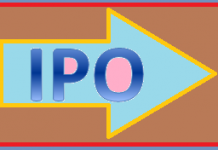The RBI has allowed banks to appoint individuals as agents for providing basic banking services in remote areas, where there are no banks or in areas where banks can’t be practically operated. Such agents are called as business correspondents(BCs).
The BCs have been providing basic banking services to nearly 6 lakh village habitations in the country, thus paving the way for financial inclusion. The BCs are considered as instruments of promoting financial inclusion in the country.
- Functions of Business correspondents: Some of the main functions of a BCs are collection of small value deposit, disbursal of small value credit, recovery of principal / collection of interest, sale of micro insurance/ mutual fund products/ pension products/ other third party products, creating awareness on savings, debt counselling, providing money management advice etc.
- Products that can be delivered: A business correspondent can open small savings accounts, Fixed Deposit(FD)and Recurring Deposit(RD) with low minimum deposits, remittance to any BC customer, micro credit and general insurance.
- Doorstep delivery of service: The highlight in providing the products is the door delivery services especially ‘cash in – cash out’ transactions at a location much closer to the rural population, thus addressing the last-mile problem.
Person who can act as Business Correspondent: Based on the RBIs list provided, the following person can act as a BC. they are Non-Government Organisations(NGO), Micro Finance Institutions(MFI),retired bank employees, retired teachers, retired govt employees and ex-servicemen, individual Public Call Office(PCO) operators, Small savings schemes operators of govt. Insurance companies, operators of Common Service Centres(CSC) etc.
Cons of being a BC:
- The salary of a business correspondent is very low.
- Banks have also imposed higher restrictions on operations of BCs.





